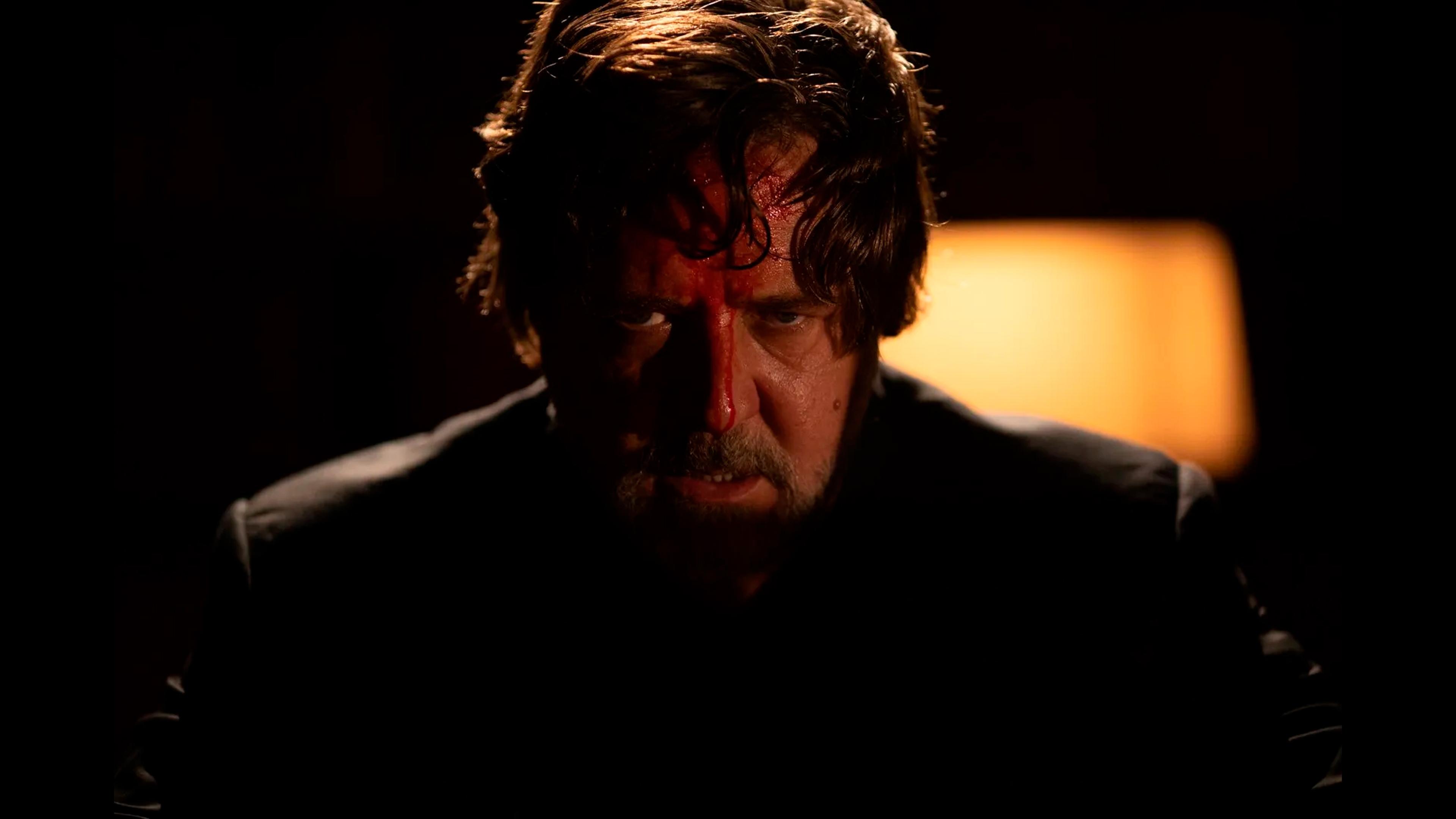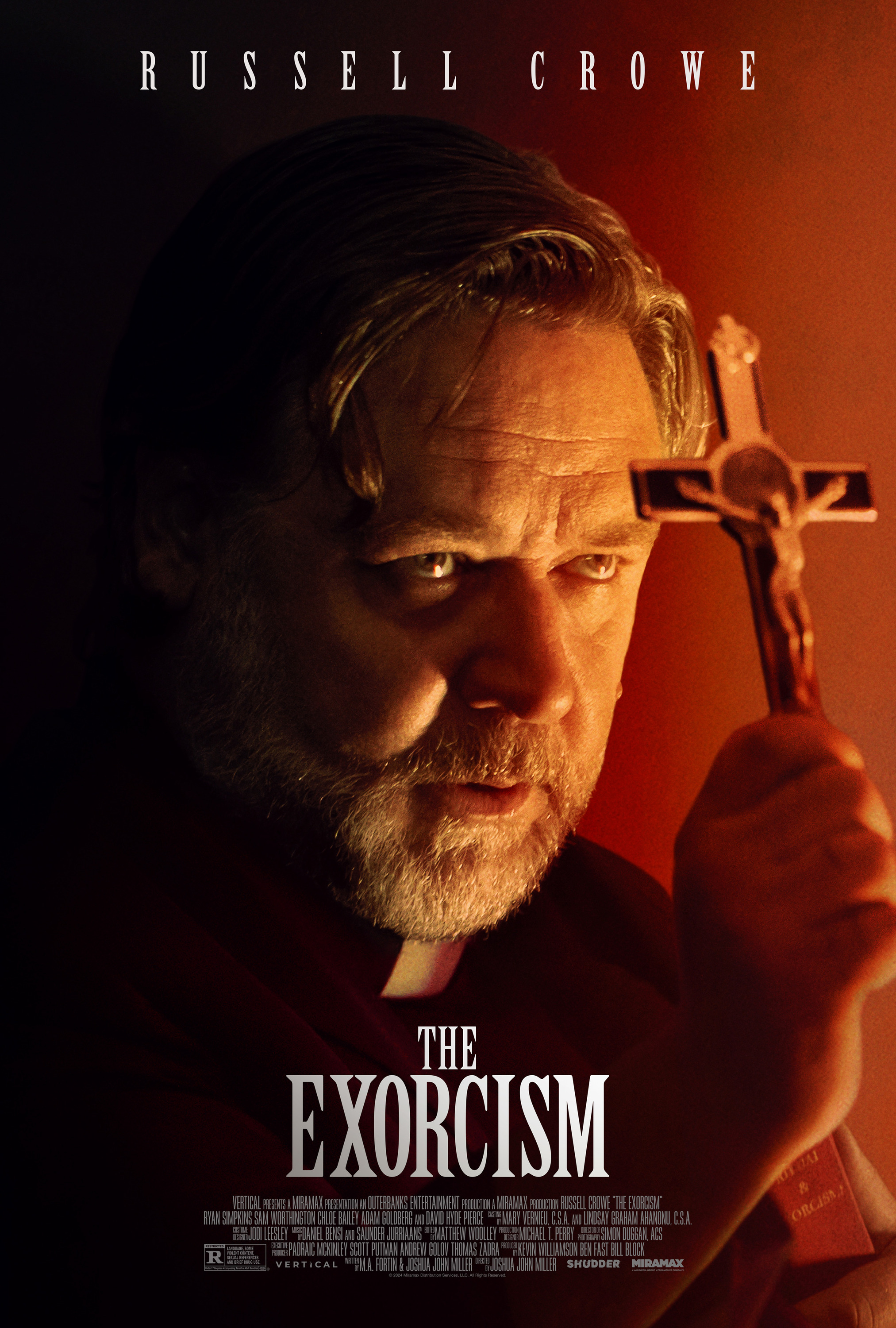The Exorcism: A Deep Dive Into The Supernatural Phenomenon
Imagine a world where the line between the natural and supernatural blurs. Where the unseen becomes visible, and the inexplicable becomes reality. The exorcism is one such phenomenon that has fascinated, terrified, and intrigued humanity for centuries. It's not just a concept from horror movies; it's a deeply rooted practice in religious and spiritual traditions around the globe.
From ancient rituals to modern-day accounts, exorcism continues to captivate our imagination. Whether you're a skeptic or a believer, the stories and experiences surrounding this practice are undeniably compelling. So, buckle up, because we're about to dive deep into the world of exorcism and uncover what makes it such a powerful and controversial topic.
Now, before we get into the nitty-gritty, let's establish one thing: exorcism isn't just about priests waving holy water around. It's a complex, spiritual, and psychological phenomenon that raises questions about faith, science, and the human mind. Ready to explore? Let's go.
- Jirah Mayweather The Rising Star In The Boxing World
- Kevin Costner The Iconic Journey Of A Hollywood Legend
What Exactly is an Exorcism?
At its core, an exorcism is the act of driving out evil spirits, demons, or other malevolent entities from a person, place, or object. This ritual is often performed by religious leaders, such as priests, shamans, or spiritual healers, depending on the cultural or religious context. The practice dates back thousands of years, with roots in various traditions, including Christianity, Islam, Hinduism, and indigenous cultures.
Exorcisms can range from formal, church-sanctioned rituals to informal, culturally specific practices. In Christianity, for example, exorcisms are typically performed by trained priests who follow specific guidelines and prayers. In other cultures, the process might involve chanting, dancing, or the use of natural elements like herbs or fire.
One interesting fact? The Vatican still trains priests in exorcism to this day. Yup, it's not just a thing of the past. The demand for exorcisms has reportedly increased in recent years, with many attributing this to the rise in mental health issues and the search for alternative explanations for unexplained phenomena.
- Bridgerton Cast The Glamorous World Of Regency Drama
- Eugene Lee Yang The Story Behind The Creative Genius Of Youtube
History of Exorcism: From Ancient Times to Modern-Day
Exorcism has been around for as long as humans have been trying to make sense of the unknown. In ancient Mesopotamia, people believed that demons were responsible for illnesses and misfortunes. They performed rituals to ward off these malevolent forces, often involving incantations and offerings.
In Christianity, exorcism gained prominence in the New Testament, with Jesus himself performing exorcisms. This laid the foundation for the Catholic Church's formalization of the practice. Over the centuries, exorcisms became a staple in religious texts, with detailed instructions on how to identify and expel demons.
Fast forward to today, and you'll find exorcism still thriving, albeit in a more nuanced form. Modern practitioners often collaborate with mental health professionals to ensure that individuals aren't misdiagnosed as being "possessed" when they may actually be suffering from psychological or neurological conditions.
Key Historical Events in Exorcism
- The Amityville Horror: One of the most famous exorcism cases, this 1970s incident involved a family claiming their home was haunted by malevolent spirits. The story was later turned into a blockbuster movie.
- Anneliese Michel: A tragic case from Germany in the 1970s, where a young woman underwent a series of exorcisms after reportedly being possessed. Her death sparked debates about the ethics and legality of exorcism.
- The Exorcist: Based on the real-life case of Roland Doe, this 1973 film brought exorcism into mainstream consciousness, forever changing how the world perceives this ancient practice.
The Science Behind Exorcism: Fact or Fiction?
Now, here's where things get interesting. For every believer, there's a skeptic questioning the validity of exorcism. Can science explain what people describe as possession? Turns out, there are some fascinating theories.
One possibility is that so-called "possessions" are actually manifestations of mental health disorders, such as dissociative identity disorder (DID) or schizophrenia. In these cases, individuals may exhibit behaviors that resemble possession, such as speaking in different voices or experiencing memory gaps.
Another theory is that exorcism works as a form of psychological therapy. The ritualistic nature of the practice, combined with the trust placed in the exorcist, can create a powerful placebo effect. For some, this can lead to genuine improvements in their mental and emotional well-being.
Does Exorcism Have a Place in Modern Medicine?
While exorcism isn't recognized as a medical treatment, it's undeniable that it provides comfort and relief to many people. In fact, some mental health professionals advocate for a collaborative approach, where exorcism is used alongside traditional therapy to address both spiritual and psychological needs.
This holistic perspective acknowledges that humans are complex beings, with physical, emotional, and spiritual dimensions. By integrating exorcism into a broader treatment plan, practitioners can offer a more comprehensive approach to healing.
Types of Exorcisms: Not All Are Created Equal
Not all exorcisms are the same. Depending on the cultural or religious context, the process can vary significantly. Let's take a look at some of the most common types:
Major Exorcism
This is the big one. Major exorcisms are performed in cases of full demonic possession, where the individual is believed to be completely overtaken by an evil spirit. These rituals are intense, often requiring multiple sessions and the presence of a trained exorcist.
Minor Exorcism
Minor exorcisms, on the other hand, are more subtle. They're typically performed during baptisms or as part of other religious ceremonies. The goal is to protect the individual from any potential demonic influence, rather than addressing a full-blown possession.
Cultural Exorcisms
Outside of organized religion, many cultures have their own versions of exorcism. For example, in some African traditions, healers use drumming and dancing to drive out spirits. In Native American practices, sweat lodges and purification rituals are employed to cleanse individuals of negative energies.
How to Identify a Possession: Signs and Symptoms
So, how do you know if someone is truly possessed? Well, it's not as straightforward as Hollywood would have you believe. While dramatic scenes like levitation and speaking in tongues do occur in some cases, there are more subtle signs to watch out for.
- Unexplained Physical Changes: Sudden weight loss, skin discoloration, or other physical symptoms with no medical explanation.
- Behavioral Changes: Extreme mood swings, violent outbursts, or a complete shift in personality.
- Supernatural Phenomena: Objects moving on their own, unexplained noises, or a sense of being watched.
It's important to note that these symptoms can also be indicative of mental health issues. That's why it's crucial to consult with both spiritual and medical professionals before jumping to conclusions.
The Role of Faith in Exorcism
At the heart of every exorcism is faith. Whether it's the faith of the exorcist, the person undergoing the ritual, or the community supporting them, belief plays a critical role in the process. For many, exorcism is a testament to the power of prayer and the strength of their spiritual convictions.
But faith isn't just about religion. It's about trust—trust in the process, in the exorcist, and in the possibility of healing. This trust can be a powerful force, helping individuals overcome their fears and find peace, even if the possession itself is more psychological than supernatural.
Controversies Surrounding Exorcism
As with any powerful practice, exorcism isn't without its controversies. Critics argue that it can be dangerous, particularly when performed without proper training or oversight. There have been cases where individuals have been injured or even killed during exorcism attempts.
On the other hand, supporters point to the countless stories of people who have found relief and healing through exorcism. They argue that dismissing the practice outright ignores the lived experiences of millions around the world.
Legal Implications of Exorcism
In many countries, exorcism falls into a gray area legally. While it's not explicitly banned, practitioners can face consequences if the ritual results in harm. This highlights the need for clear guidelines and regulations to ensure that exorcisms are performed safely and ethically.
Personal Stories: Real-Life Accounts of Exorcism
Let's talk about the human side of exorcism. There are countless stories of people who have experienced possession and undergone exorcism. Some describe it as a life-changing event, while others remain skeptical of the entire process.
Take, for example, the story of Maria, a young woman from Brazil who claimed to be possessed by a malevolent spirit. After months of struggling with unexplained symptoms, she underwent a traditional exorcism performed by a local shaman. To her surprise, the ritual provided her with the relief she desperately needed.
On the flip side, there are stories like that of John, a man from the UK who sought exorcism after being diagnosed with schizophrenia. His experience highlights the importance of balancing spiritual and medical approaches to ensure the best possible outcome for individuals.
Conclusion: The Future of Exorcism
As we've explored, exorcism is a complex and multifaceted phenomenon that continues to captivate and challenge us. Whether you view it as a deeply spiritual practice or a psychological tool, there's no denying its impact on human culture and belief systems.
So, what does the future hold for exorcism? With advances in science and medicine, we may one day have a clearer understanding of the forces at play. Until then, exorcism remains a powerful reminder of the mysteries that still surround us.
Now, it's your turn. Have you ever experienced or witnessed an exorcism? Share your thoughts and stories in the comments below. And don't forget to check out our other articles for more fascinating insights into the supernatural world!
Table of Contents
- What Exactly is an Exorcism?
- History of Exorcism: From Ancient Times to Modern-Day
- The Science Behind Exorcism: Fact or Fiction?
- Types of Exorcisms: Not All Are Created Equal
- How to Identify a Possession: Signs and Symptoms
- The Role of Faith in Exorcism
- Controversies Surrounding Exorcism
- Personal Stories: Real-Life Accounts of Exorcism
- Conclusion: The Future of Exorcism



Detail Author:
- Name : Domingo Hane
- Username : giles00
- Email : talon.ratke@hotmail.com
- Birthdate : 1975-04-13
- Address : 520 Rohan Stravenue Zanehaven, NJ 24702
- Phone : 650-432-9429
- Company : Ullrich Ltd
- Job : Stonemason
- Bio : Illum aspernatur cum excepturi quae aut. Nulla velit rerum sed. Est incidunt similique consectetur dicta.
Socials
tiktok:
- url : https://tiktok.com/@ignaciostreich
- username : ignaciostreich
- bio : Et quia qui fugiat qui eos ipsam perspiciatis.
- followers : 6860
- following : 1212
facebook:
- url : https://facebook.com/ignacio_streich
- username : ignacio_streich
- bio : Non non necessitatibus consequatur temporibus sit veniam.
- followers : 2138
- following : 628
twitter:
- url : https://twitter.com/streichi
- username : streichi
- bio : Quasi est et minima aut nulla. Autem vel recusandae voluptas voluptas modi amet laboriosam nihil. Unde aliquam molestiae asperiores ducimus sit.
- followers : 3142
- following : 1716
instagram:
- url : https://instagram.com/ignacio3892
- username : ignacio3892
- bio : Maxime ipsam qui omnis harum quis consequuntur. Ut vel rerum aliquid amet.
- followers : 1875
- following : 2624
